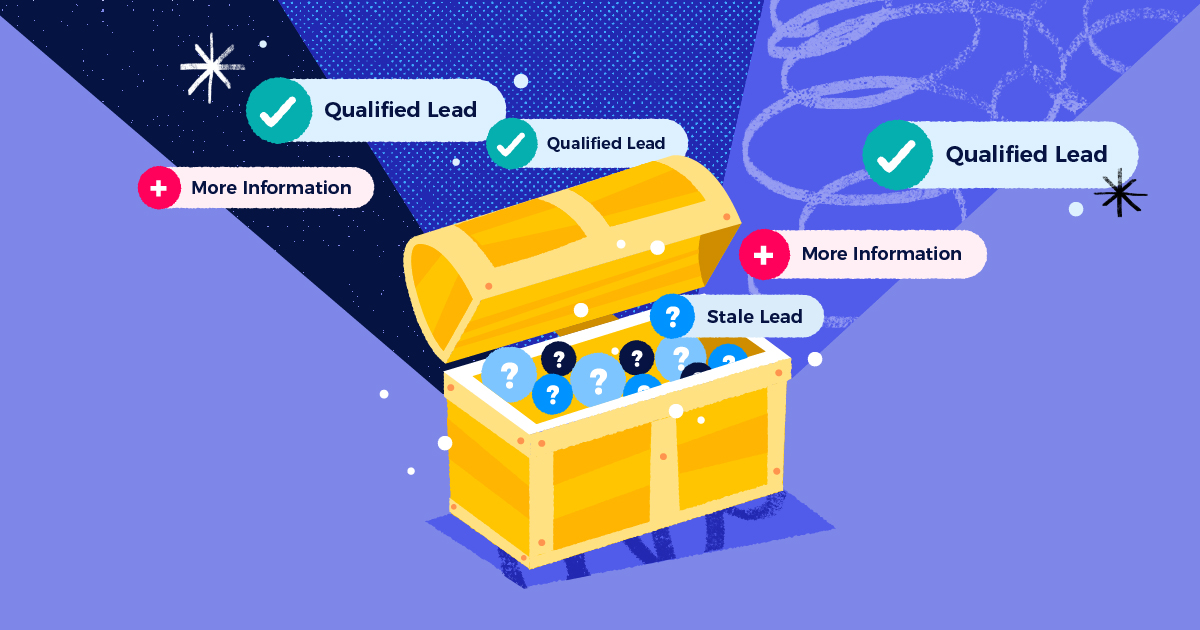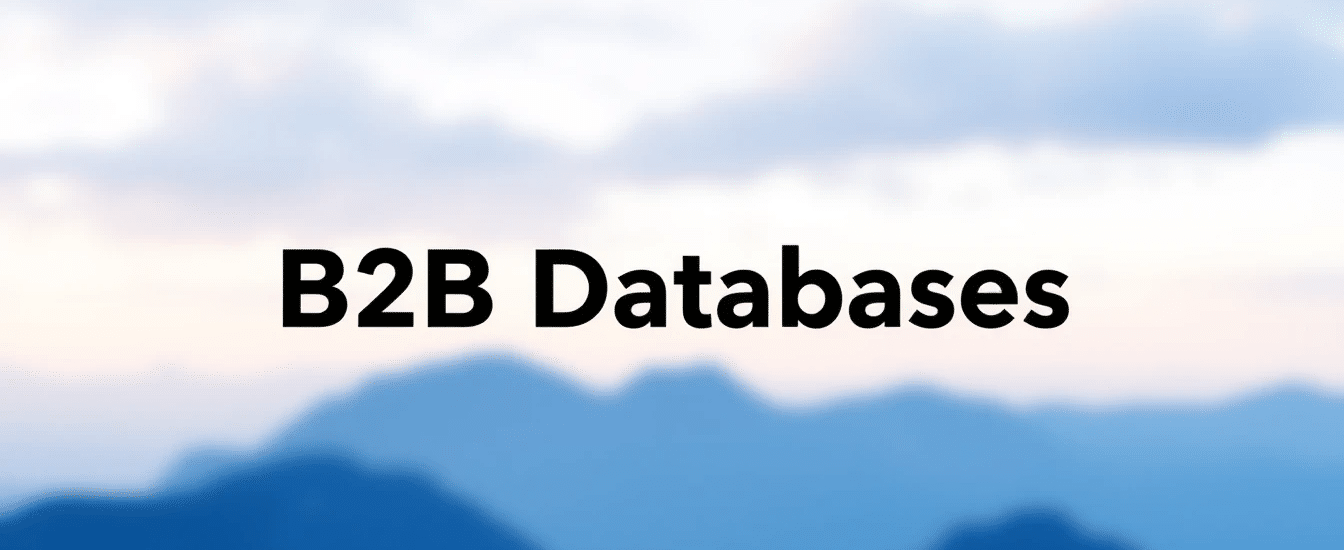In the fast-paced and highly competitive world of B2B sales, data has become the cornerstone of success. B2B databases are structured repositories of business contact information, company insights, and decision-maker details that drive strategic marketing and sales initiatives. In Singapore, a hub of innovation and economic dynamism, B2B databases are increasingly becoming indispensable tools that help organizations outmaneuver the competition and close deals with precision.
Singapore’s status as a global financial and tech hub means businesses require advanced tools to stay ahead. The demand for sophisticated B2B lead generation strategies, powered by reliable data, is soaring. With the integration of Artificial Intelligence (AI) and AI marketing techniques, companies are redefining how they approach B2B sales funnels and customer acquisition.
The Anatomy of a Quality B2B Database
A high-quality B2B database is defined by its accuracy, relevance, and usability. The most effective databases feature verified email addresses, job titles, company size, revenue data, industry classification, and geographic location. Beyond contact lists, advanced B2B databases provide psychographic insights and behavioral data to enhance targeting.
Accuracy is crucial—outdated or erroneous data can lead to wasted marketing spend and missed opportunities. Leading providers often implement rigorous verification standards, including real-time data validation and AI-powered data cleansing. Furthermore, databases tailored to specific industries allow companies to reach niche audiences and personalize outreach based on market-specific variables.

Singapore’s B2B Market: A Goldmine of Opportunity
Singapore’s B2B market is thriving, fueled by its strategic location, digital economy, and pro-business policies. The city-state boasts one of the highest concentrations of multinational corporations (MNCs) and is a magnet for startups and SMEs alike. These conditions make it fertile ground for B2B interactions, particularly in sectors like fintech, biotech, logistics, and software services.
The country’s robust infrastructure and regulatory transparency attract investors and technology vendors looking to scale. For startups, accessing curated databases opens doors to early-stage partnerships, while larger enterprises rely on enriched data for account-based marketing strategies and corporate outreach.
How B2B Databases Drive Sales Success
Effective B2B lead generation starts with the right data. A well-maintained database allows sales teams to quickly identify high-value prospects and segment audiences for tailored messaging. Through AI marketing tools, companies can analyze historical interactions, score leads, and forecast purchasing behavior.
Personalized campaigns built from data insights result in higher conversion rates and stronger customer relationships. Moreover, a dynamic database allows continuous optimization of the sales pipeline—ensuring timely follow-ups, reducing churn, and enabling reps to prioritize leads based on intent signals.

Top Providers of B2B Databases in Singapore
Singapore offers a mix of local and international database vendors. Local providers like DataRegister and SG Leads cater specifically to the Singaporean business ecosystem, offering deep local insights and compliance with local data protection regulations. On the other hand, global platforms such as ZoomInfo, Cognism, and Lusha provide scalable solutions with AI marketing integrations and API access for real-time updates.
When evaluating providers, it’s essential to consider accuracy rates, refresh cycles, CRM compatibility, and support services. Additionally, pricing models may vary—ranging from pay-per-lead to subscription-based access.

Case Studies: B2B Databases in Action
A prominent tech startup in Singapore used AI-powered B2B databases to identify underserved verticals in logistics tech. By tailoring their outreach based on firmographic and technographic data, they increased their qualified lead volume by 220% within six months.
In another case, an MNC expanding into Southeast Asia utilized enriched B2B data to identify regional decision-makers. Through AI-driven segmentation and multichannel campaigns, the company streamlined its expansion and improved ROI on marketing spend.
Meanwhile, a mid-sized SME specializing in corporate gifting used curated contact lists to target HR departments across the finance sector. This targeted approach helped them double their close rate within one quarter.
Legal and Ethical Considerations
Compliance is non-negotiable. In Singapore, the Personal Data Protection Act (PDPA) governs the collection, use, and disclosure of personal data. B2B marketers must ensure all data usage aligns with PDPA mandates, especially when collecting personal identifiers like email addresses and phone numbers.
Opt-in models are preferred for ethical outreach, though opt-out systems are still in use in some contexts. Businesses must maintain clear privacy policies, provide easy unsubscribe mechanisms, and avoid over-personalization that may breach ethical lines.
Integration with Marketing and CRM Tools
B2B databases offer maximum value when seamlessly integrated with CRM platforms such as HubSpot, Salesforce, and Zoho. These integrations automate workflows, nurture leads, and enrich contact records in real-time. For example, sales teams can receive alerts when a lead opens an email, visits a landing page, or requests a demo.
Data hygiene is vital—regular cleansing ensures outdated or duplicated records do not clutter CRM systems. Furthermore, AI-driven enrichment tools can append missing data fields and update records based on current market signals, allowing for smarter segmentation and campaign design.
ROI and KPIs from Using B2B Databases
Return on investment (ROI) is a critical metric for evaluating database performance. By calculating the customer acquisition cost (CAC) and comparing it to the customer lifetime value (LTV), businesses can assess how effective their data-driven strategies are.
Other KPIs include email open and click-through rates, conversion rates, engagement levels, and sales velocity. Using B2B databases improves targeting precision, leading to more meaningful engagement and higher-quality leads—translating into measurable revenue gains.
Overcoming Common Challenges
Despite their power, B2B databases come with challenges. One of the most common issues is data decay—where information becomes outdated due to job changes, company relocations, or rebranding. Using Artificial Intelligence to detect and update outdated entries in real-time is a growing solution.
Another challenge is navigating Singapore’s multicultural and multilingual environment. Localized messaging and cultural sensitivity are crucial for resonating with diverse audiences. Balancing scale with personalization remains a delicate but essential task in B2B lead generation.
Trends and Innovations in B2B Data Solutions
Emerging trends are redefining the B2B data landscape. AI marketing is now enabling predictive analytics, where algorithms forecast buying behavior based on patterns and intent signals. This allows sales teams to act proactively rather than reactively.
Real-time data enrichment and integration with machine learning tools are also gaining traction. These innovations allow continuous optimization of campaigns, higher responsiveness, and hyper-personalization—ensuring each touchpoint is tailored to the individual prospect’s needs and journey stage.
Choosing the Right B2B Database for Your Business
Selecting the right database begins with understanding your unique needs. A startup may prioritize cost-effective solutions with high growth potential, while an enterprise may need deep customization, integration support, and 24/7 account management.
Look for providers with a proven track record, excellent support teams, and transparent data sourcing methods. User reviews, case studies, and free trials can help in making an informed decision.
Conclusion: Data as the Unsung Hero of B2B Growth
In the Singaporean business arena, B2B databases are not just tools—they are strategic assets. From B2B lead generation to AI marketing campaigns, quality data empowers businesses to act intelligently, target precisely, and scale rapidly.
As Artificial Intelligence continues to reshape how we interpret and leverage data, those who embrace these technologies and data-driven strategies will lead the charge in closing more deals, faster and smarter. The future of B2B success in Singapore lies at the intersection of data, innovation, and human insight.

